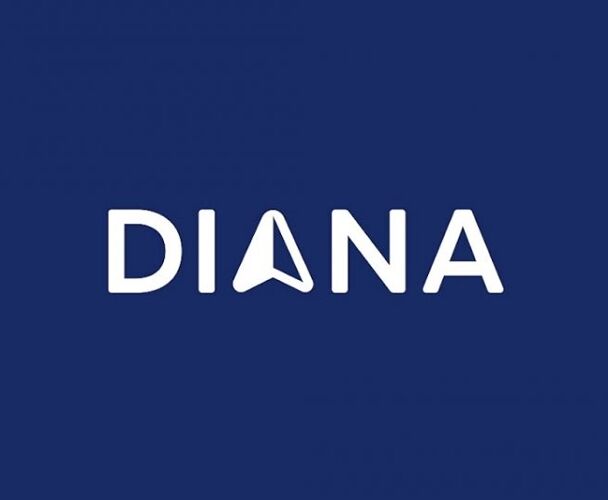Read the full Ius Laboris Guide for International Employers across the world: COVID-19: How and where to work
Latvia
1. Government support for employers
The law provides a number of support measures for businesses. Those relating to employment are listed below:
- Companies in the tourism sector that meet the criteria stated in the regulations will be able to receive support of 30% of the mandatory state social insurance contributions made in 2019. The maximum support for one company or group of companies is EUR 800,000. The deadline for submission of applications for receiving support was 30 September 2020.
- Export companies that meet the criteria in the regulations will be able to receive support of 25% of the mandatory state social insurance contributions made in 2019. The maximum support for one company or group of companies is EUR 800,000. The deadline for submission of applications for receiving support was 30 September 2020.
- Affected businesses can apply for idle time compensation which will be paid to employees. This amounts to 70% of their average gross monthly salary for three months (in August, September, October 2020), but starting with 1 January 2021 the compensation amount must amount to no less than EUR 500 and no more than EUR 1000 for a full month. In addition to the downtime allowance, the State Social Insurance Agency will also grant a supplement of EUR 50 for each dependent child under the age of 24, for which the employee is subject to personal income tax relief. Moreover, the employer may pay its employees the difference between the downtime allowance and the full salary received so far.
- Affected businesses can apply for salary subsidies for employees who work part time. These will be up to the amount of their average gross monthly salary for three months (in August, September, October 2020), but not more than EUR 500 per month per employee. At the same time, the employer is obliged to pay the employee the difference between the amount of subsidies received and the amount of salary, thus ensuring that the employee receives 100% compensation. Applications for December can be submitted until 15 January, and for January until 15 February.
2. Testing and Vaccination
2.1 COVID-19 testing
The employer is entitled to send an employee for a mandatory health examination, but not to require him or her to take a COVID-19 test. A general obligation on all employees to provide a negative coronavirus test would be considered as excessive.
2.2 Vaccination and vaccination status in the workplace
As long as the vaccination is voluntary, employers cannot make it a mandatory health and safety requirement for employees to be vaccinated and employees cannot be required to inform their employer of their vaccination status.
2.3 Incentives for vaccination
COVID-19 vaccination is free of charge in Latvia. If in the future there will be fees applicable to vaccination, employers can pay for employees’ vaccinations. Employers cannot offer employees an incentive for getting vaccinated, but employers can encourage their employees to get the vaccination and provide their employees with relevant information.
2.4 Dealing with refusal or inability to get vaccinated
Employers cannot dismiss an employee who refuses to be vaccinated or alter their working conditions if an employee refuses to be vaccinated. Currently, employers have an obligation to ensure the option for remote work for employees if the specific nature of the work allows it.
If an employee has religious or other objections to vaccination or cannot be vaccinated for medical reasons, this cannot be considered as a basis for different treatment. In a dispute where an employee demonstrates facts indicating direct or indirect discrimination on any grounds, the burden is on the employer to prove that any differential treatment was based on objective, non-discriminatory grounds.
2.5 Vaccination and data privacy
Information regarding employees’ vaccinations would need to be processed by an employer strictly in accordance with the GDPR. The employer must have a legal basis for processing such data by reference to Articles 6 and 9 GDPR. Employee consent is unlikely to constitute a valid legal basis for collecting information relating to vaccination, as in practice employees may not have any real choice in the matter.
2.6 Vaccination and posted workers
If a COVID-19 test or vaccination is required to enter and work in a host country, the posting employer is responsible for ensuring the employee is tested or vaccinated prior to a posting. The receiving employer can only ask for testing or vaccination information if COVID-19 test or vaccination is required to work in host country.
3. How to keep workers safe in the office
3.1 Setting up the workplace
There are no special regulations in place for employers who are restarting operations apart from the general obligation to ensure social distancing of two metres, where possible, to ensure personal protective equipment is provided to employees for work on site which is necessary for the performance of work duties.
Employers must appoint a person responsible for the introduction of measures to limit the spread of COVID19 at the workplace. It is recommended you arrange gatherings and meetings remotely, encourage employees to regularly ventilate the premises and use hand sanitiser.
Employers can introduce various measures at their own discretion, such as mask wearing.
3.2 Vulnerable employees
Employers are liable for ensuring a safe working environment for all employees, so if there are any vulnerable population groups, adequate safety measures should be ensured, but the law does not mandate specific measures).
The general rule is that a pregnant woman can consult a doctor, who after assessing the pregnant woman’s health, may order sick leave or issue a statement prohibiting the pregnant woman’s employment.
3.3 Back in the office
Employers have an obligation to ensure that employees have the possibility of working remotely for employees if the special nature of the work allows it.
Generally, employees cannot refuse to come back to work unless there are clear indications that the working environment is not safe. Disciplinary measures could be applied to employees who refuse to return to work.
3.4 Suspected cases
The general rule is that the employer is liable for ensuring a safe working environment for employees. Employers are entitled to send an employee for mandatory health examination. An employee must inform the employer about contracting COVID-19 or being in contact with a person who has contracted it. Likewise, an employer has the right to ask for this information.
In the event of a suspected case of COVID-19 in the workplace the employee should leave the work premises immediately. If this is not possible, he/she must self-isolate in a separate room from other employees until it is possible to leave. The employee should contact his/her family doctor. The emergency medical services may be called if necessary.
Rooms, surfaces and common areas should be disinfected, paying particular attention to the rooms in which the employee was present.
Employers must take measures to ensure occupational health and safety of employees and clients, not allowing anyone who tested positive for COVID-19 come or stay in workplace premises. COVID-19 patients are issued sick leave certificates until their recovery.
There is no obligation on the employer to report to public health authorities, as data on positive COVID-19 cases is automatically transferred to the Centre for Disease Prevention and Control. Upon request, employers should provide the Centre for Disease Prevention and Control with extensive and accurate information about employees, customers and other possible contacts.
The employer must inform other employees who were in contact with a person that has tested positive for COVID-19 of that fact on a no-name basis and arrange a test for them.
3.5 Return to work after recovery
If the infected employee has not had symptoms of COVID-19, s/he can stop strict isolation and return to work after receipt of a doctor’s statement on the tenth day after the onset of the disease. However, if the individual had symptoms of COVID-19, they can receive a doctor’s statement of fitness to work on the tenth day, if at least three days have passed since symptoms disappeared. If a person has a severe case of COVID-19 infection, they can receive a doctor’s statement of fitness to work on day 20 following the onset of the disease, if at least three days have passed since symptoms disappeared. Until then the employee remains on sick leave.
4. Where to work
4.1 How to organise homeworking for the long term
Employer should compensate the costs related to remote work if the employee experiences additional costs related to his/her work, including the acquisition, installation and use of work equipment. However, the amount of compensation and the terms and conditions for payment, as well as other rights and obligations of employee and employer should be determined by agreement between the parties.
At least until 7 February 2021, if the special nature of the work allows working remotely, the employee has the right to refuse to return to the workplace. If the employee is not able to perform work duties at home, provided that all safety measures in the workplace are ensured, the employer can request employees to return to the workplace.
4.2 Working from another country
Immigration
Travel restrictions and self-isolation requirements should be considered.
Local employment law, social security, tax, data privacy
In this case employment rules, data privacy, health and safety measures remain subject to Latvian law.
Social security, tax
The social security contributions and taxation of salary earned from working abroad depends on an individual’s residency status and is subject not only to Latvian law but also to international treaties.
In general, the fact that some employees work from another country (and possibly sign some contracts or carry out sales activities in another country) can create permanent establishment for a Latvian company abroad. However, according to the OECD guidance, an exceptional and temporary change of the location where employees work because of the COVID19 crisis, such as working from home, should not create new permanent establishment for the employer. It would, however, be important to demonstrate that the work from abroad was indeed caused by the restrictions imposed due to the COVID-19 pandemic.
Health and safety measures
As to safety measures, the employer is obliged to conduct a work risk assessment in the place the remote work is taking place. This rule applies regardless of the location of the employee. The employee is obliged to cooperate with the employer during the risk assessment process. Risk assessment can be done remotely. The employer should inform, instruct and train employees who work remotely on health and safety issues and how to deal with the identified risks safely.
Authors: COBALT Latvia Partner Toms Šulmanis, Assistant Lawyer Alīna Ustinova.





